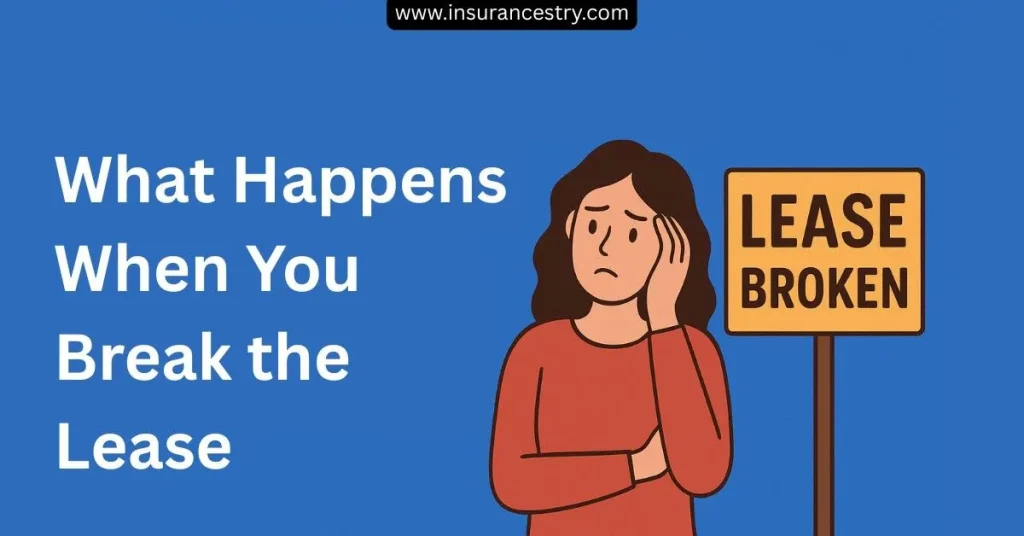Let’s be real—life doesn’t always go according to plan. Maybe you scored a new job in another city, your relationship took a turn, or you just realized your apartment isn’t “the one.” Whatever the reason, if you’re thinking about leaving early, you might be wondering: what happens when you break the lease? Don’t worry—we’ve got you covered. From legal stuff to financial implications, this guide explains everything you need to know.
Understanding Your Lease Agreement
Before you do anything drastic, grab your lease agreement. This document is your roadmap for what happens next. A lease is a legally binding contract between you and your landlord, and breaking it isn’t just saying, “I’m moving out.”
Most leases have an early termination clause that explains penalties for breaking the lease. Some landlords charge a flat fee, some require you to pay rent until a new tenant is found, and others may use your security deposit.
So, first things first: read the fine print. It’s the best way to understand the consequences of breaking your lease.
Why People Break Leases
People leave apartments early for all kinds of reasons:
- Job relocation: A new job across the country often forces you to move before your lease ends.
- Financial struggles: Rent can get steep, and life throws curveballs.
- Relationship changes: Breakups, marriages, or divorces sometimes mean moving out is unavoidable.
- Health issues: Certain medical conditions or unsafe living conditions may give you a legal out.
- Uninhabitable conditions: Mold, leaks, pests, or safety hazards could make breaking your lease justified.
Knowing your reason can help you negotiate with your landlord or even avoid penalties.
The Legal Side of Breaking a Lease
So, what really happens when you break the lease legally? Technically, it’s a breach of contract. But “breach” doesn’t automatically mean court battles—though it could. Here’s what might happen:
1. Paying a Penalty
Many leases have an early termination fee—often one or two months’ rent—to cover landlord losses.
2. Covering Rent Until a New Tenant Moves In
Some states require landlords to try to re-rent quickly. If they find someone fast, your liability might be reduced.
3. Losing Your Security Deposit
Security deposits can be used to cover unpaid rent or fees if you break your lease early.
4. Legal Action
If the landlord loses money, they might take you to small claims court. Usually, they prefer negotiation, but legal action is possible.
5. Credit Score Impact
Unpaid rent or court judgments can hurt your credit. That’s why planning ahead is so important.
Steps to Take Before Breaking a Lease
Before you pack up, follow these smart steps:
1. Review Your Lease
Look for early termination clauses, penalties, and subletting rules.
2. Talk to Your Landlord
Explain your situation. Some landlords allow sublets or reduced fees if you help find a replacement tenant.
3. Consider Subletting
Subletting can save money and stress, but make sure your landlord approves.
4. Document Everything
Take photos of your apartment, keep emails, and note any agreements.
5. Know Your State Laws
Some states require landlords to try to re-rent quickly; others don’t.
Financial Implications of Breaking a Lease
Breaking a lease can cost you, so let’s break down the money side:
- Early termination fees: Usually one or two months’ rent.
- Lost rent: You might owe until a new tenant moves in.
- Security deposit: Could be partially or fully withheld.
- Moving costs: Movers, storage, utility transfers—don’t forget.
- Legal fees: Rare but possible if disputes escalate.
How to Minimize the Pain of Breaking a Lease
- Negotiate with your landlord: Ask for smaller fees or a payment plan.
- Find a replacement tenant: Save them time and money.
- Give plenty of notice: More time equals less liability.
- Document apartment condition: Helps recover your deposit.
- Check state laws: You might have legal protections.
Real-Life Scenarios: What Happens When You Break the Lease
Scenario 1: Job Relocation
Jane moves out early for a new job. Her lease says two months’ rent as a penalty. She finds a replacement tenant, and the landlord agrees to waive one month’s rent. Result: only one month owed.
Scenario 2: Financial Hardship
Tom moves out without telling his landlord. The landlord sues and wins. Tom owes remaining rent plus court fees. Lesson: communication matters!
Scenario 3: Uninhabitable Apartment
Sara documents mold and leaks, notifies the landlord, and legally breaks the lease. She leaves with no penalties and gets her security deposit back.
Breaking a Lease Without Consequences
Sometimes you can leave early without losing money:
- Mutual agreement: Both parties agree to end the lease.
- Subletting: Landlord approval is key.
- Legal protections: Military deployment, domestic violence, or uninhabitable conditions.
Check your local laws—these vary by state.
Tips for a Smooth Transition
- Start early. Don’t wait until the last minute.
- Communicate clearly with your landlord.
- Be flexible—offer subletting or move-out options.
- Keep records—emails, photos, receipts.
- Stay professional—politeness goes a long way.
Final Thoughts on What Happens When You Break the Lease
So, what happens when you break the lease? It depends. You might face fees, lose your deposit, or even deal with court action—but with planning, communication, and negotiation, you can minimize consequences. Life happens, and sometimes moving early is the best choice. Just do it smartly, and you’ll be fine.


